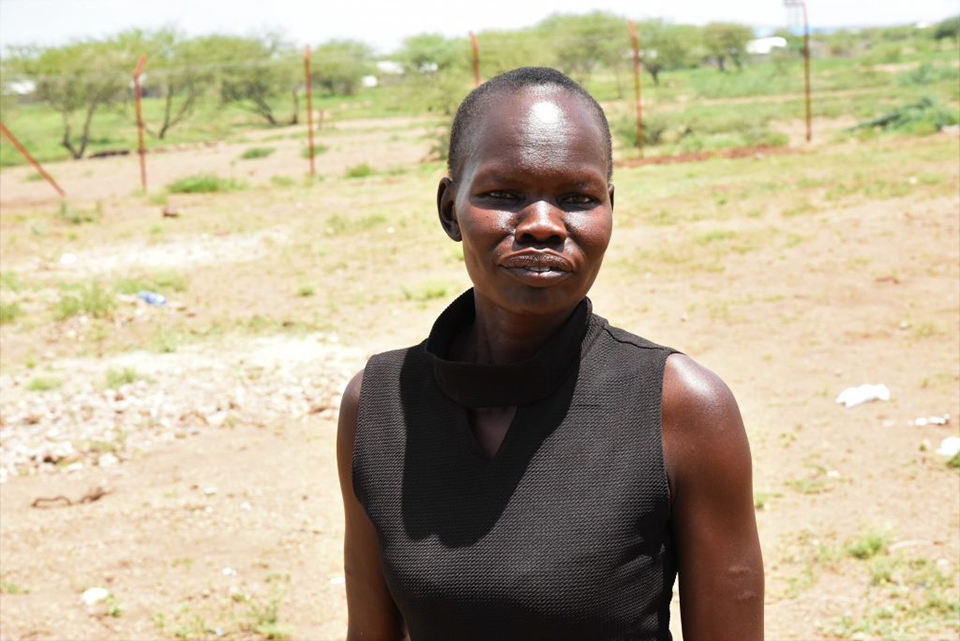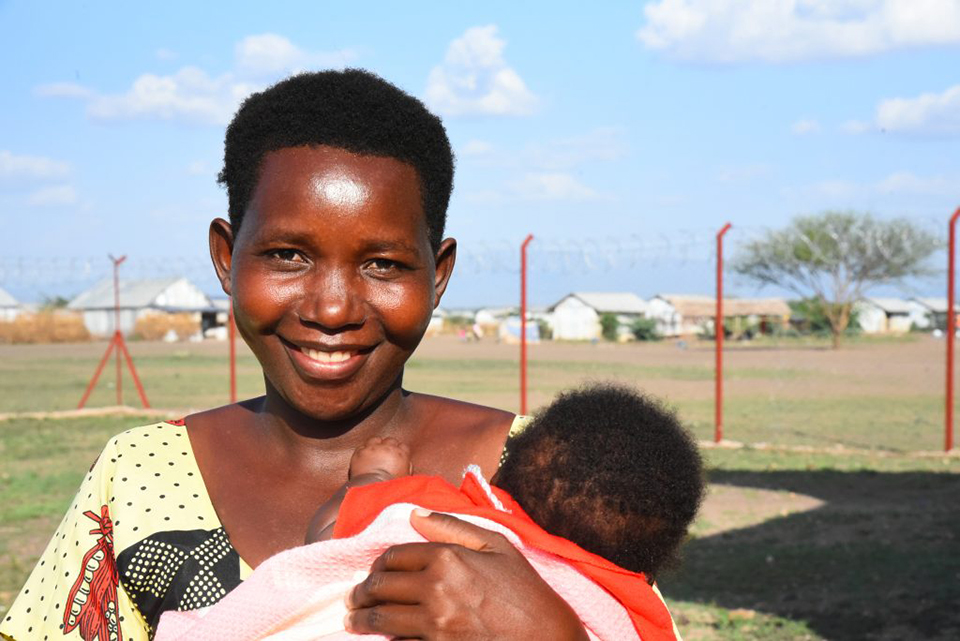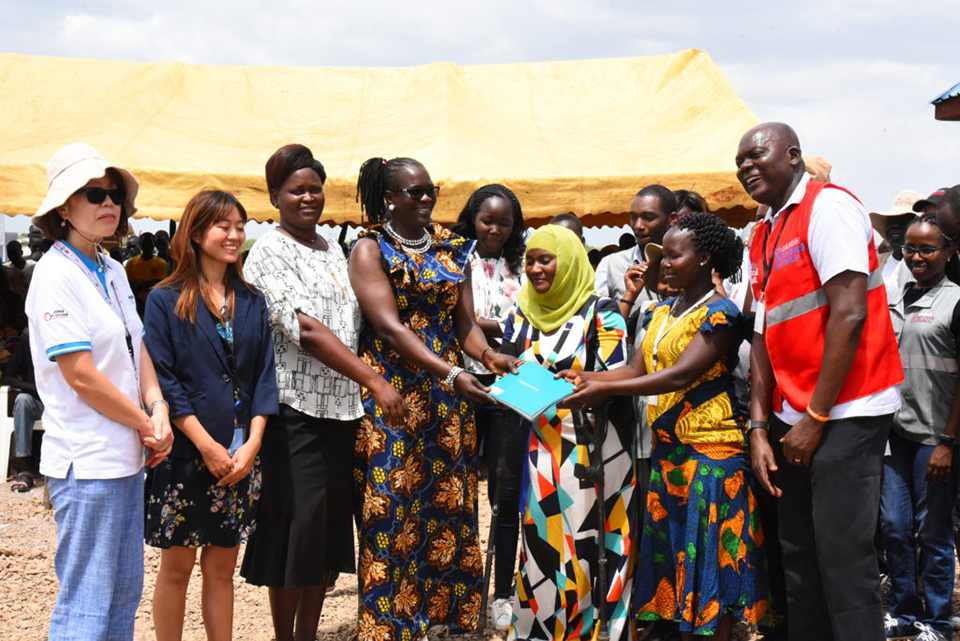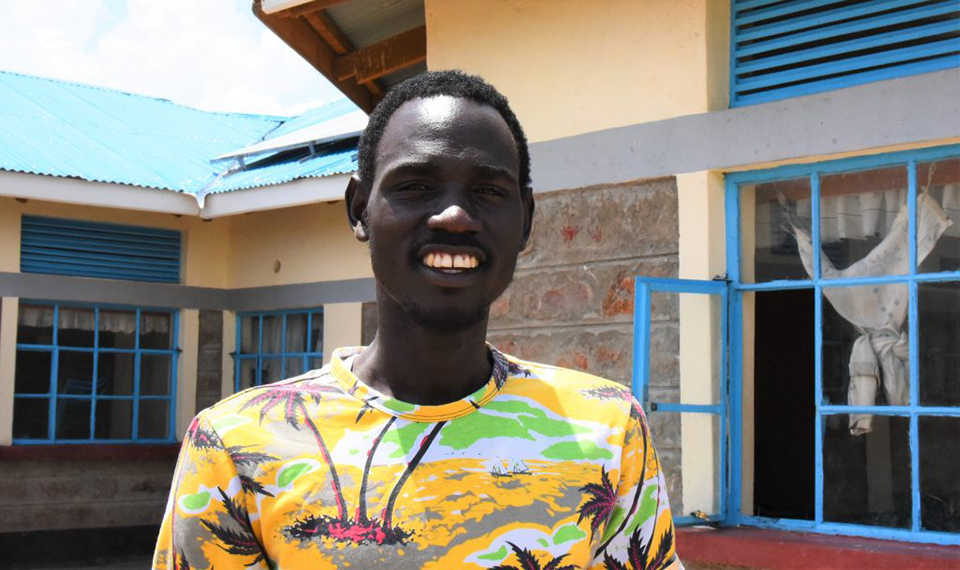COVID-19 Response in Kenya: UN Women Partners with the Government of Japan to Promote a Gendered Approach to Empower Refugee Communities
Date:

Since 2018, UN Women Kenya in partnership with the Government of Japan, has been using a multi-sectoral approach to bring gender equality to Kakuma Refugee Camp, Kalobeyei Integrated Settlement and Dadaab Refugee Camp. The “Leadership, Empowerment, Access & Protection in Crisis Response” targets four interconnected areas that develop livelihoods of women and girls; educate men and boys; and contributes to sustainable peace in communities.

Women in leadership positions, particularly in crisis settings, needs to be urgently addressed the world over. In Kakuma, Kalobeyei and Dadaab, the programme has enabled women to build an understanding of conflict management which can be applied to the household and community. Kina Adong, 39, from South Sudan is one woman who now enjoys an elevated role in her community:
“From the training, I did not keep quiet. I gathered women in the community and formed a committee. I teach women the things I learnt and advise how to deescalate situations which could lead to conflict with a partner/husband. There have been some positive changes in the community: less fighting at water points, less stealing, less beatings of children. The response from men in the community has also been positive – they are happy, and I have their support – for them, their wives are gaining knowledge. The husbands can also benefit from this knowledge.”

Empowering women to control their own livelihoods and economic security, creates autonomy and, in turn, reduces the likelihood they will suffer from losses in their rights. Through vocational skills training, such as beadwork and handicrafts, women in Kalobeyei are now able to establish cooperatives for a production line that aims to supply customers beyond the confines of refugee camps.
“I was a business woman,” explains Rivella, mother of eight, from Burundi. “From a small plot of land I sold bananas and sweet potatoes. I learned handicraft skills in Burundi. When I was young, my mother used to make plates. In Kalobeyei, I have refined those skills and used them for different designs – but the technique is essentially the same.
In the food basket, there is only food but these skills have brought back my dignity. I’m respected at home and the family relationship is better. My children are not sent home from school because I can afford books and uniforms.”

Unaccompanied children and women experience immeasurable risk even when in the camps, with separated women being more disadvantaged. Access to health, law and legal services are therefore critical in refugee camps. In February 2020, the project was able to open the Women’s Empowerment Centre in Kalobeyei Village 3. The space serves as a multipurpose centre for vocational training but also offers shelter for survivors of gender based violence (GBV) as well as psycho-social support. Given maternal emphasis on childcare in local culture, the space also has a creche so those with young children cannot be obstructed from accessing essential services.

One strategy of the LEAP programme is to change social norms and attitudes in the camp. Male engagement is vital for any meaningful effort to prevent in GBV. Abwollah Ojwok, 26, is a male champion for gender quality in the community. He is concerned about the level of attendance in his classes:
“I have been working as a primary school teacher for over a year. The class can be up to 50 boys / 25 girls – a big class! We expect more girls to be there. I see them [pupils] in the market sometimes and ask why they have not been in class, they don’t tell me why – but I tell them they should keep coming.
Conflict in the home is often caused by overloading – women are often overloaded with tasks. Back home, for example, women were responsible for collecting water, collecting firewood and preparing food but these tasks can be shared. If the woman is cooking, we should think of helping with another task – it shares the load and also saves time. These things change slowly. In Africa it can be very hard to change these ideas, because of traditions.”